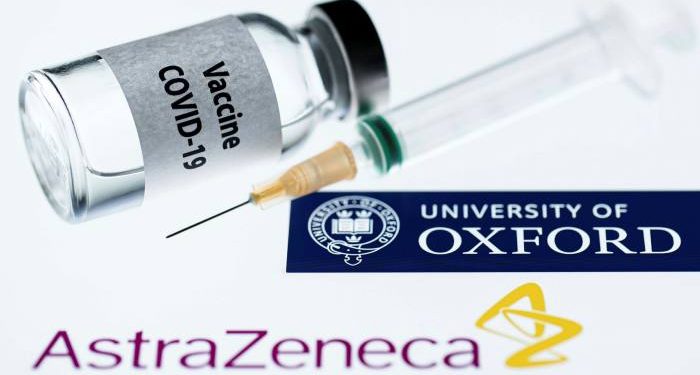London: Oxford’s COVID-19 vaccine candidate has a better immune response when a two full-dose regime is used rather than a full-dose followed by a half-dose booster, the university said Thursday. The COVID-19 vaccine is expected to go into production very soon.
The vaccine candidate, which has been licensed to AstraZeneca, has published interim late stage trial results showing higher efficacy when a half dose is followed by a full dose, compared to a two full-dose regime, though more work needs to be done to affirm the result.
The details from the Phase I/II clinical trials released Thursday made no reference to the half-dose/full-dose regime, which Oxford has said had been ‘unplanned’ but approved by regulators.
The university said it had explored two dosing regimes in early stage trials, a full-dose/full-dose regime and a full-dose/half-dose regime, investigated as a possible ‘dose sparing’ strategy.
“The booster doses of the vaccine are both shown to induce stronger antibody responses than a single dose, the standard dose/standard dose inducing the best response,” the university said in a statement.
Also read: Oxford University praises Ganjam district’s effective COVID-19 management
The vaccine “stimulates broad antibody and T cell functions,” it said after publishing further data from the Phase I/II clinical trials.
AstraZeneca has applied for emergency use authorisation in some countries. It has also tied up with Serum Inistitute of India (SII) for production in large quantities. The Oxford-AstraZeneca vaccine is expected to be in use from next month onwards.






































